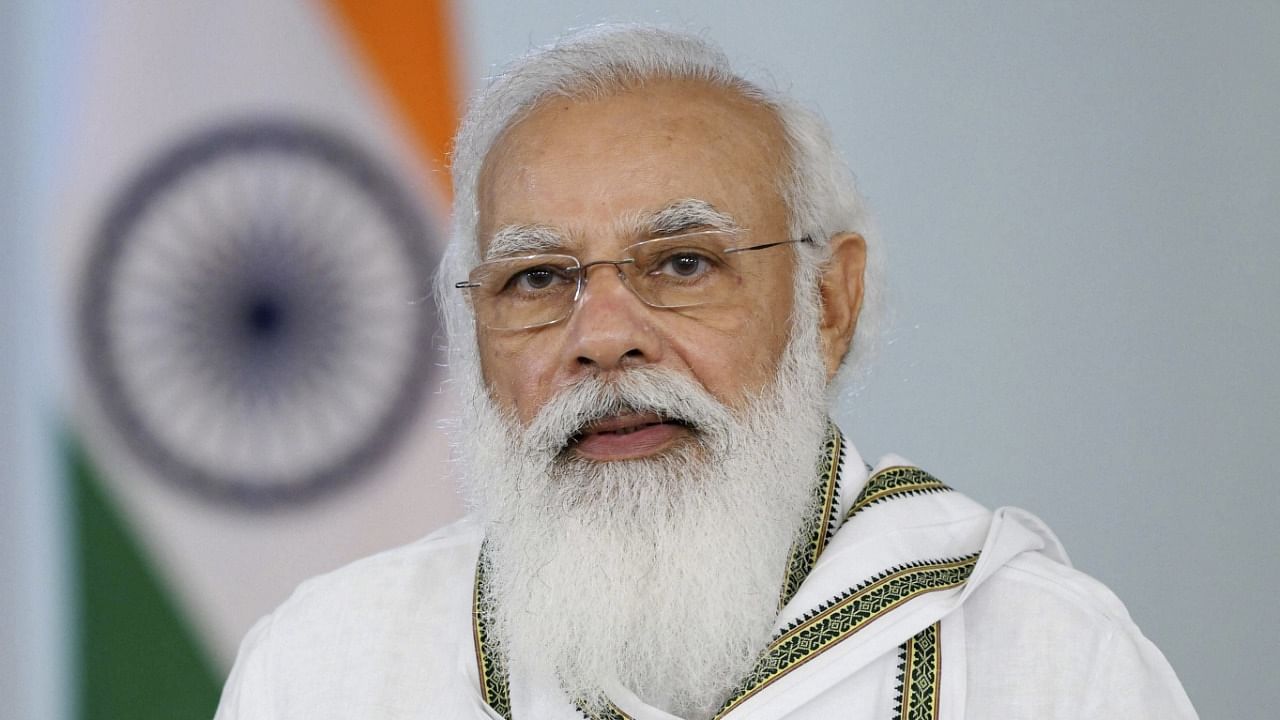
Prime Minister Narendra Modi on Monday asserted India’s role as a “Net Security Provider” for the Indian Ocean region as he chaired a virtual Security Council session, which upheld the primacy of the United Nations Convention on the Law of the Sea (UNCLOS) despite resistance from China.
“It is obviously necessary to build infrastructures to promote maritime trade, but such projects should be embarked upon, keeping in mind the fiscal sustainability and the absorption capacity of the nations,” the Prime Minister said, subtly taking a dig at Chinese President Xi Jinping’s cross-continental connectivity project, Belt and Road Initiative, which was criticized for predatory lending practices that put several smaller nations in the region in debt-traps.
Modi chaired the session on maritime security just nine days after India, currently a non-permanent member of the UNSC, took over its presidency for the month of August. He was the first Prime Minister of India to chair a UN Security Council session.
The Prime Minister suggested that a roadmap for maritime security cooperation should be based on five principles – resolving maritime disputes according to international law, removing barriers to promote legitimate maritime trade, cooperation between nations to deal with maritime threats posed by non-state actors and natural disasters, protecting maritime environment and resources and responsible maritime connectivity.
The session saw the UNSC adopting the outcome document, a Statement by the President of the Council, which reaffirmed that international law, as reflected in the UNCLOS adopted on December 10, 1982, set out the legal framework applicable to activities in the oceans, including countering illicit activities at sea.
The negotiations on the outcome document ahead of the session was not smooth. China, one of the permanent members of the UNSC, wanted the presidential statement to drop any reference to the 1982 UNCLOS in the context of resolving maritime disputes. Three other UNSC permanent members – United States, France and the United Kingdom – insisted on retaining the reference to it. India mediated between China and the US-led camp and was finally able to find language acceptable to all, without dropping the reference to the UNCLOS.
Though an Arbitral Tribunal constituted under the 1982 UNCLOS delivered a unanimous decision five years ago rejecting China’s expansive claims on the South China Sea, Beijing has been steadfastly refusing to adhere to it.
The Prime Minister highlighted India’s role as the “Net Security Provider” for the Indian Ocean region, referring to the Indian Navy’s anti-piracy patrolling, India’s support to other nations, be it to boost maritime security capability and dealing with natural disasters or to conduct a hydrographic survey or to enhance maritime domain awareness.
Russian President Vladimir Putin was among the three other foreign leaders, who participated in the meeting of the council. President Joe Biden’s Secretary of State Antony Blinken represented the United States in the session, which saw the first-ever standalone discussion on maritime security at the UNSC.
India’s growing strategic convergence with the United States to counter China’s hegemonic aspirations in the Indo-Pacific region has of late emerged as an irritant in its relations with Russia. But high-level participation by Russia and the United States in a Security Council session chaired by the Prime Minister of India is being projected by New Delhi as a diplomatic success of its balancing act.
The Prime Minister referred to India’s vision of SAGAR, or ‘Security and Growth for all in the Region’, which he articulated in 2015 and which focusses on cooperative measures for sustainable use of the oceans and providing a framework for a safe, secure, and stable maritime domain in the region. He also spoke about India’s Indo-Pacific Oceans’ Initiative (IPOI), which was put forward in 2019 and which focusses on seven pillars of maritime security including Maritime Ecology; Maritime Resources; Capacity Building and Resource Sharing; Disaster Risk Reduction and Management; Science, Technology and Academic Cooperation; and Trade Connectivity and Maritime Transport.
